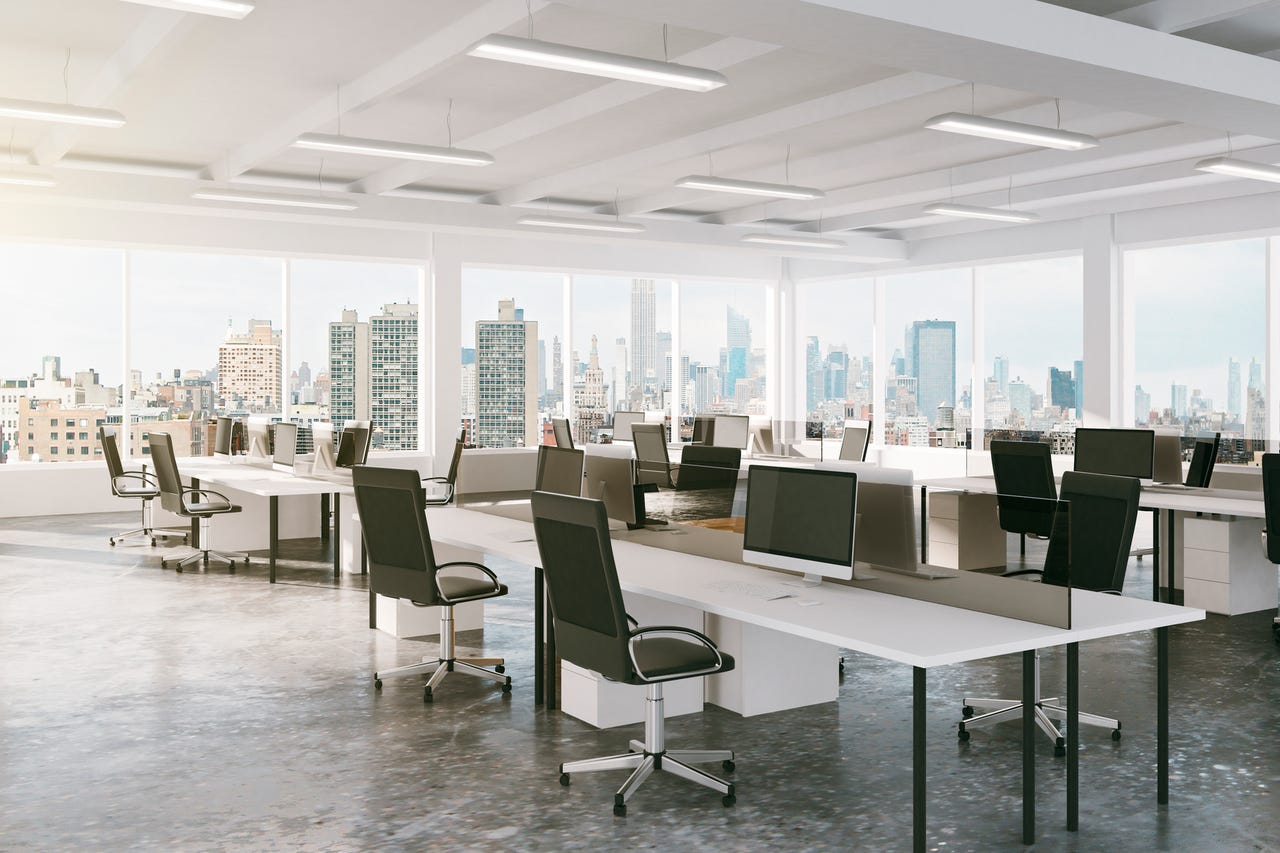Coronavirus: Open offices have Americans worried


The office of the future? Empty?
I had lunch canceled yesterday because the person I was going to meet had a headache.
No, she didn't think she had coronavirus, but right now everyone's concerned so safety is their No. 1 priority.
No one wants to be the person who infected someone else.
How concerned, though, are Americans about their workplaces being the nest that will breed infection?
PR company Bospar asked 1,014 Americans whether they were worried and what specifically worried them.
According to Bospar's study, 62.6% confessed they were worried about COVID-19, while 55.3% feared they'd get it this year, and 42.9% are concerned they'll get it in the next few weeks.
Fewer Americans (35.4%) fear they will die from it than that it will kill someone they love (45.8%).
But what about work? Surely going to an office and mingling with other people raises the risk. Well, slightly more than half of these respondents believe open offices will exacerbate the spread of the virus. However, only 41% actually think their open offices are a hotbed of infection.
This is odd, given that COVID-19 is a virus spread, in part, by coughing and sneezing. And coughs and sneezes can travel far further than some might think.
Open-plan offices were always a difficult idea to stomach. The purported reason -- bringing people closer together -- masked the real reason: Saving money. In too many offices people sit with headphones on, ignoring each other. This was somehow said to be a more modern way to work, driven by tech companies.
Still, more and more tech companies are now encouraging their employees to stay at home.
The Bospar research, performed over the weekend, perhaps showed how fear and confusion can infect each other. For example, 49.4% of these Americans said they were planning to cancel trips because of coronavirus, just as companies are doing for their employees.
However, research from travel site Skift suggests that only 12% of people have canceled. Perhaps this is due to much personal travel being booked two or months in advance. Some may be hoping it'll all blow over soon.
One possible side-effect, of course, is that working from home may suddenly feel like more of a norm. Which, for many, will require a completely different mental approach -- and, perhaps, wardrobe. Then again, we're isolating ourselves so much as it is -- preferring to have food via online delivery, for example, rather than going out -- that too much time at home may not be a healthy thing.
Because some elements of this virus's behavior are still unknown, many are preparing for a prolonged struggle.
No one knows what effect this may have on the world of work in the future. Will we all end up working from our own little bubbles?